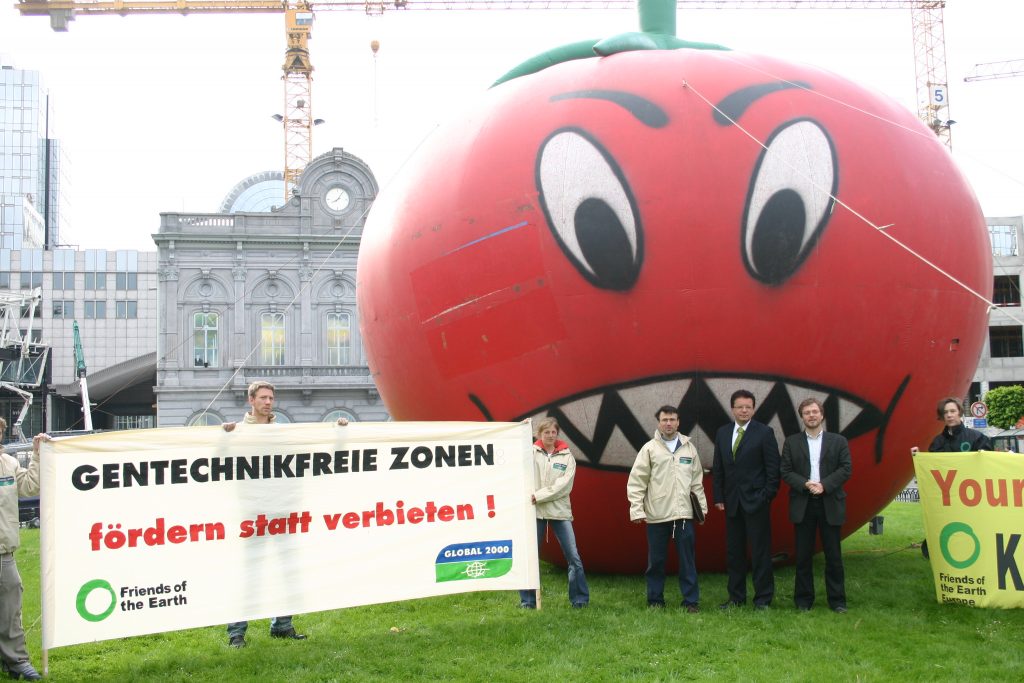Brussels, March 14, 2011 – The costs of segregating genetically modified (GM) and conventional crops are much higher than originally thought, and could push up food prices, warns Friends of the Earth Europe in a new briefing today. ‘The socio-economic effects of GMOs’ reveals the hidden costs of GM crop cultivation that are being unfairly pushed onto conventional and organic sectors – risking further GMO-contamination and increased food prices – and comes as environment ministers meet to discuss GM-crops in Europe. [1]
Environment ministers will assess the legality of banning the cultivation of GM-crops on their territories, but the discussion must take into account the full social and economic impacts of growing GM crops, and not be based on industry-biased models.
Mute Schimpf food campaigner for Friends of the Earth Europe says:
“The true environmental and economic costs of GM-crops must be taken into account when discussing GM-crop cultivation in Europe. The biotech industry must be held accountable for damage done through cross contamination – the costs must not be unfairly pushed onto farmers, consumers and taxpayers.”
European policy relies on the assumption that non-GMO stakeholders in the food industry pay for all measures to secure their GMO-free status. Official EU research concludes that the segregation of GM-crops from conventional products could increase product costs by up to 13% [2], but the real figure is far higher. New research from Friends of the Earth Europe shows key costs involved in segregation are not reflected in EU research [3]. The costs incurred for maintaining GMO and conventional separation, including monitoring and testing, far outweigh any projected economic benefits of lower production costs.
Biotech companies, traders and other GMO users must take responsibility to prevent contamination to ensure that the conventional and organic market in Europe can flourish without unjust financial burdens.
Mute Schimpf added: “99.9 percent of European land remains GM-free, and widespread opposition to genetically modified crops and foods in Europe continues to grow. GM-crops will hinder, not help, in the challenge to ensure we can feed a growing global population. Decision makers must call for an end to further GM-crop cultivation in Europe ensuring a vibrant rural economy and greener farming”
Friends of the Earth Europe calls for a moratorium on all GMO cultivation approvals until the socio-economic impact assessment of GMOs is integrated into the EU approval system, alongside strict and compulsory anti-contamination measures in all European countries. All costs to prevent GM-contamination must be covered by the polluters.







